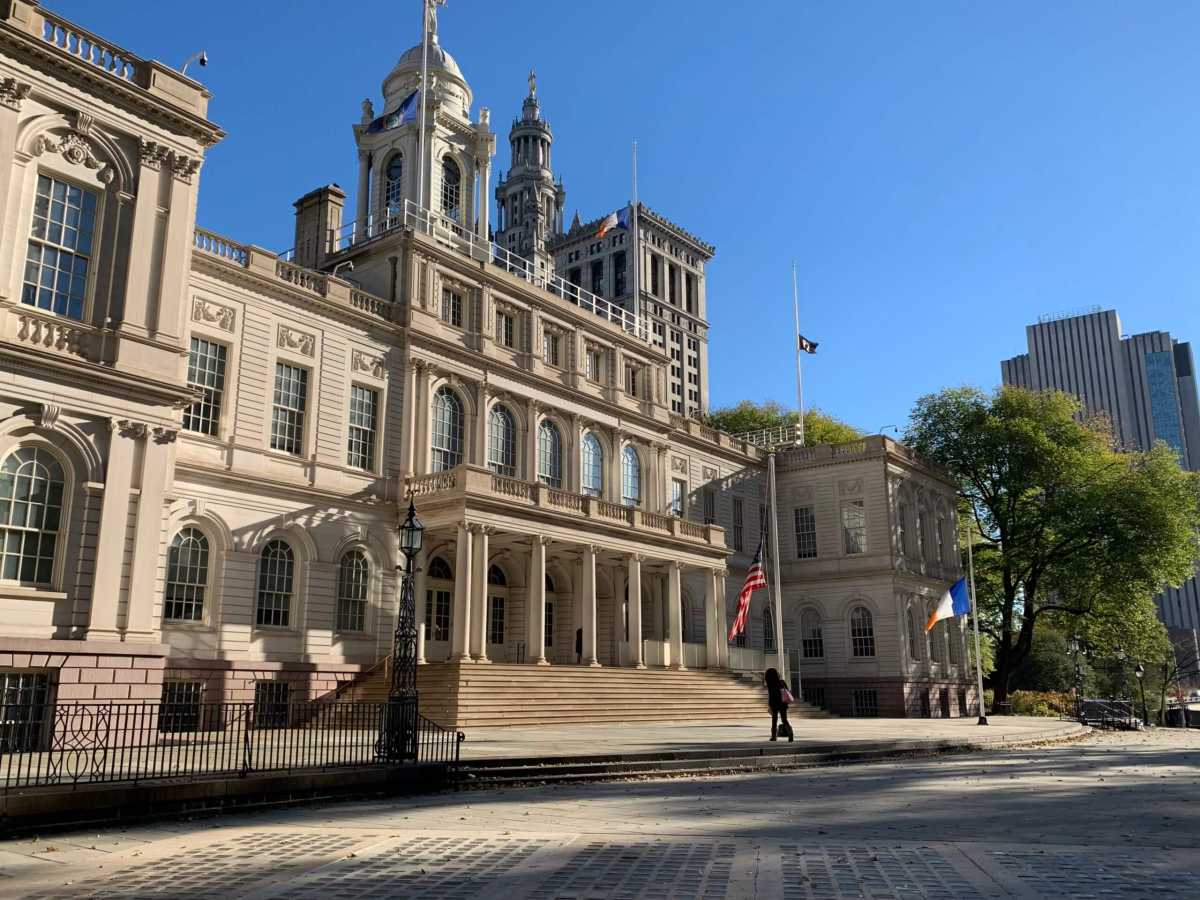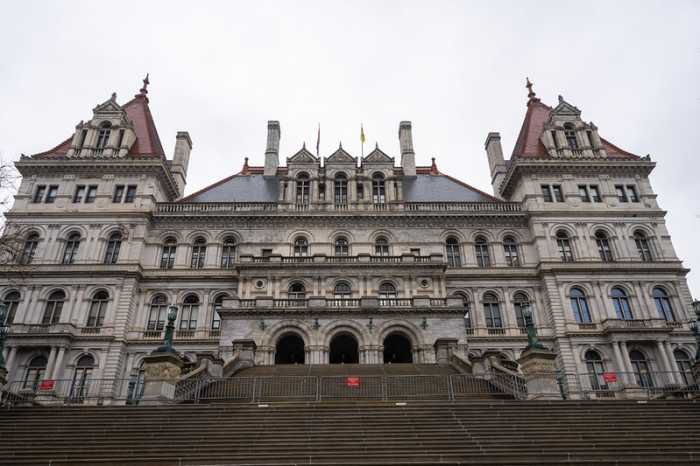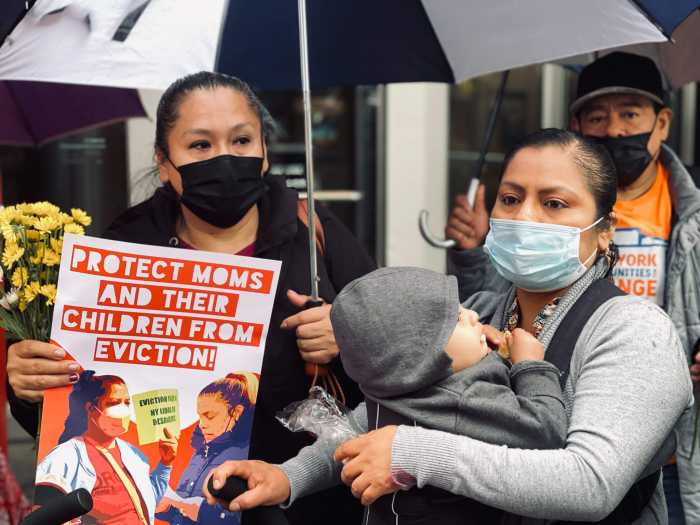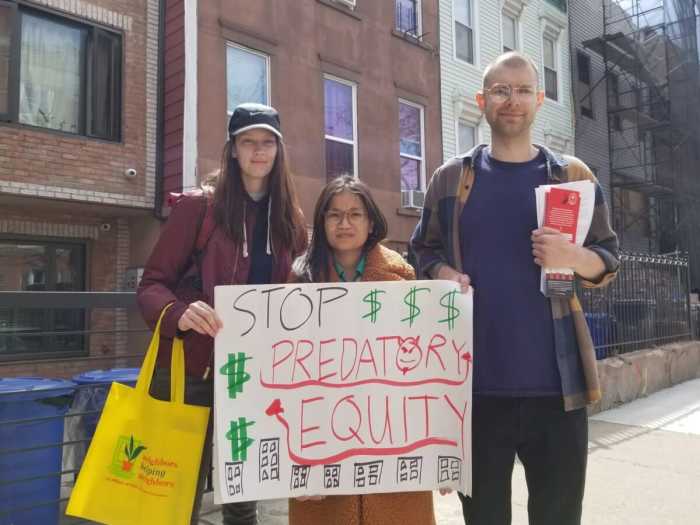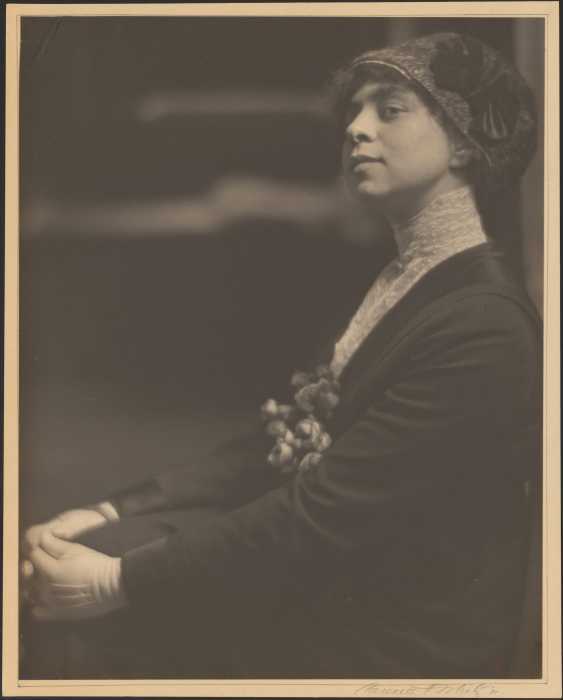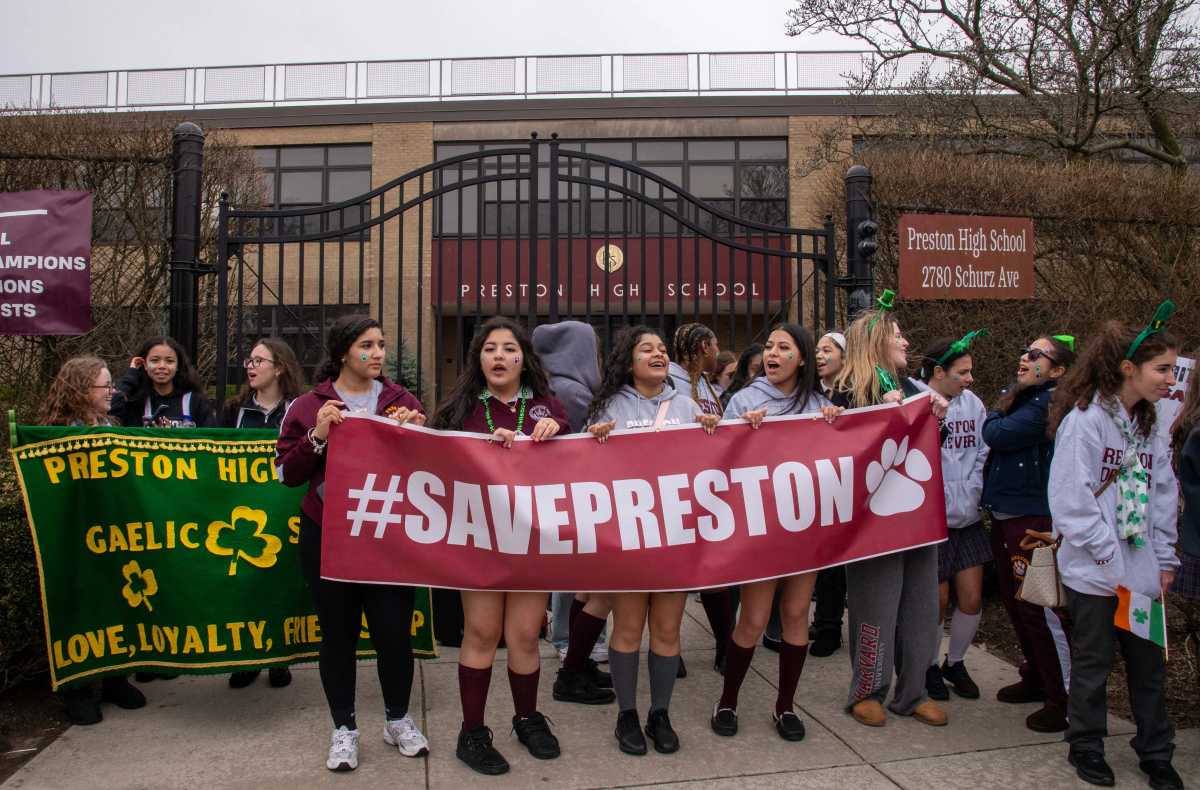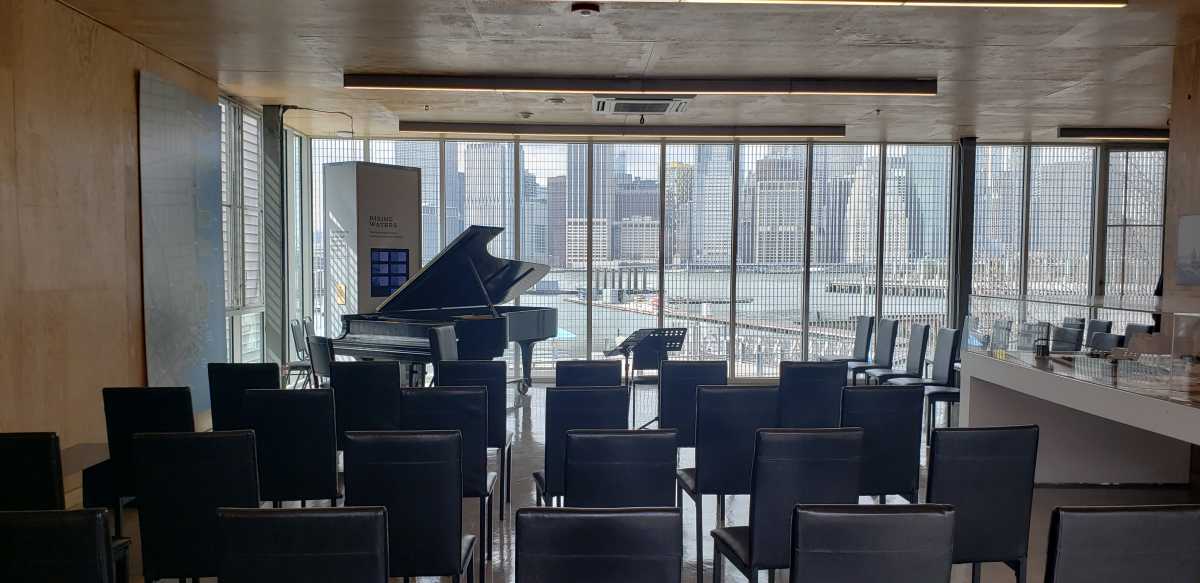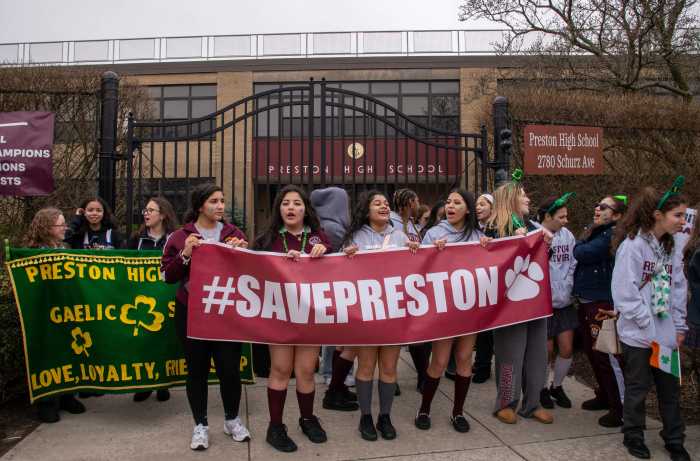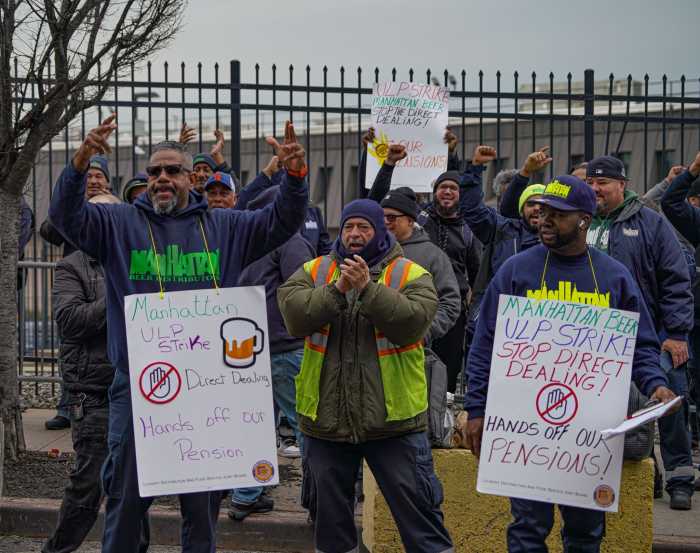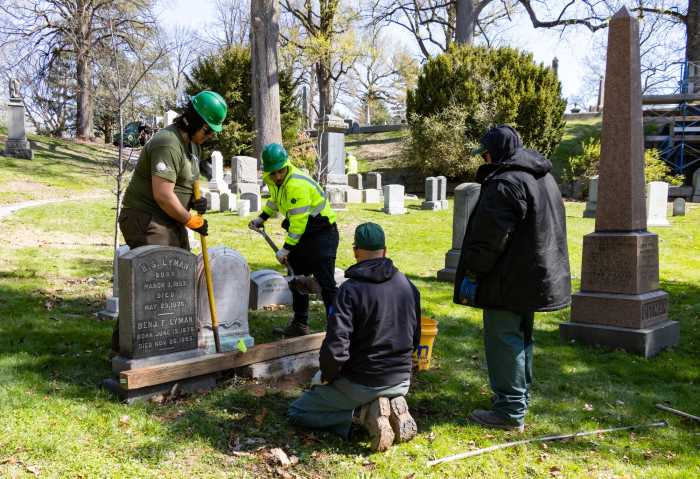Turning the page on the political fault line shifts across New York in 2022, the new year has the potential to bring a whole new slate of shakeups to city and state government.
City Council Elections
At the city level, all eyes are on the upcoming City Council races, where the 51 council members elected just in 2021 – many of them freshmen in the chamber – will have to run again to hold onto their recently captured seats.
The quick turnaround on council elections, which usually take place every four years, is a result of this year’s City Council redistricting that takes place after the U.S. Census once every decade. The at-times bumpy redistricting process significantly shook up the district lines in some parts of the city, setting up what will likely be some competitive races.
One contest that’s sure to be a nail-biter is the upcoming race for the newly redrawn Council District 47 in southern Brooklyn. The seat was reconfigured to combine the majority Bay Ridge district of Council Member Justin Brannan (D) and a district that includes Coney Island represented by Council Member Ari Kagan (R), who was first elected just last year.
Earlier this month, Kagan, who fiercely opposed the changes to his district, switched his party affiliation from Democrat to Republican and launched a bid against Brannan for the seat. While Kagan clearly felt left out to dry by his fellow Democrats in the redistricting process – which was run by a 15-member commission with appointees from Mayor Eric Adams, Council Speaker Adrienne Adams and Council Minority Leader Joe Borelli – he said the reason for his switch was more about growing ideological differences between himself and the party.
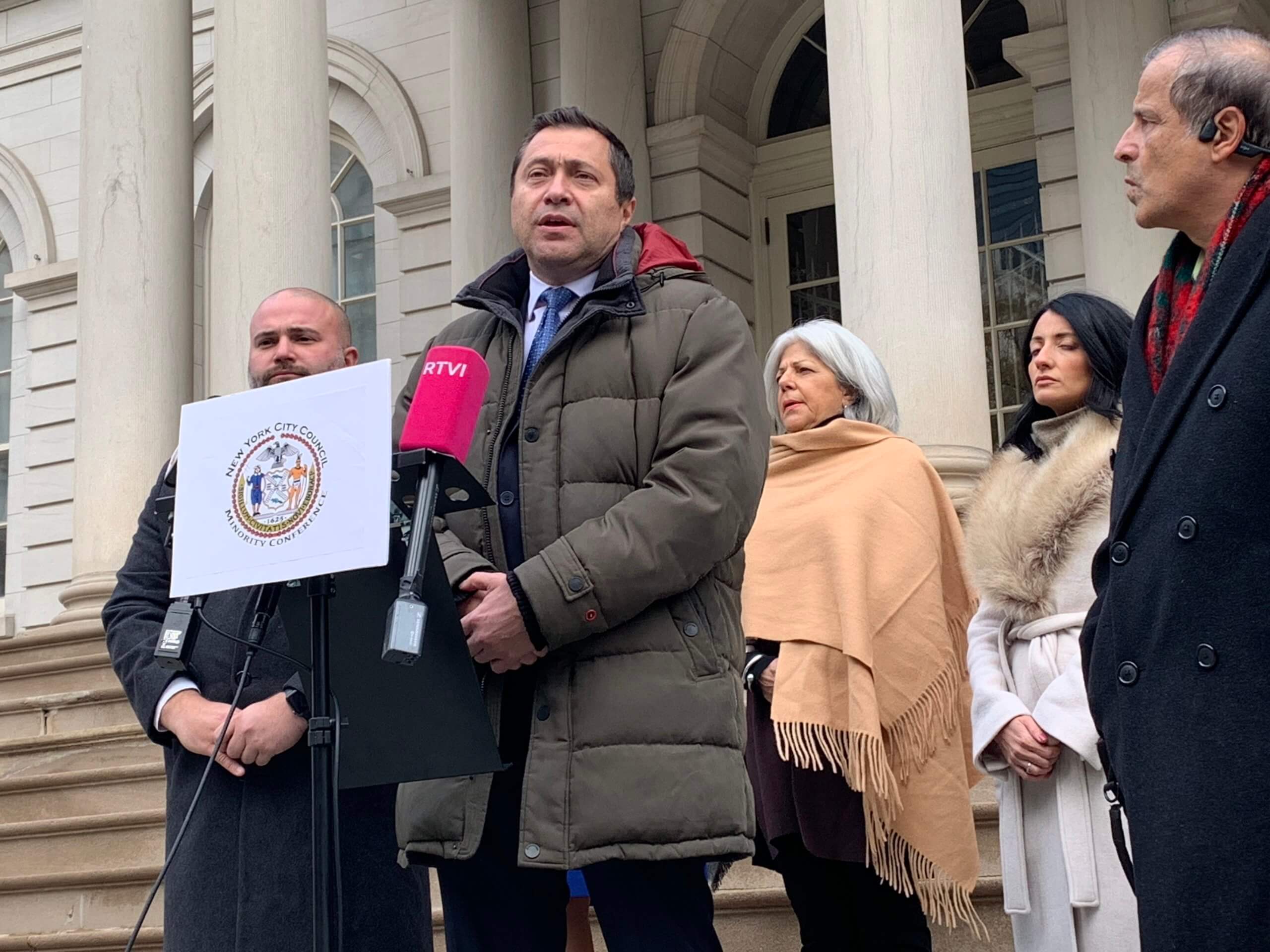
“Over the last several years in my personal humble opinion, [the] Democratic Party in New York became moving to the left at such a speed that they could not even keep up,” Kagan said at the time. “And on issue after issue every year, every month, I started to feel that it’s not me leaving the Democratic Party, but [the] Democratic Party very quickly started to leave me.”
For his part, Brannan – who won his last election by a razor-thin margin – may be facing harsher political headwinds after Republicans flipped three Assembly seats and almost won an open state Senate seat in southern Brooklyn this year. Yet Brannan said he’s used to running in the politically purple swath of the borough and is expecting a competitive race.
“I think that there’s political headwinds to be concerned about in southern Brooklyn,” Brannan said. “I think a lot of us have been raising the alarm on these headwinds for quite a while.”
“But, I mean, I have always been focused first and foremost, on constituent services and being responsive 24/7,” he added. “And that absolutely has been the reason why I’ve been able to outrun the top of the ticket in both of my general elections. And the new lines seem to be even more favorable.”
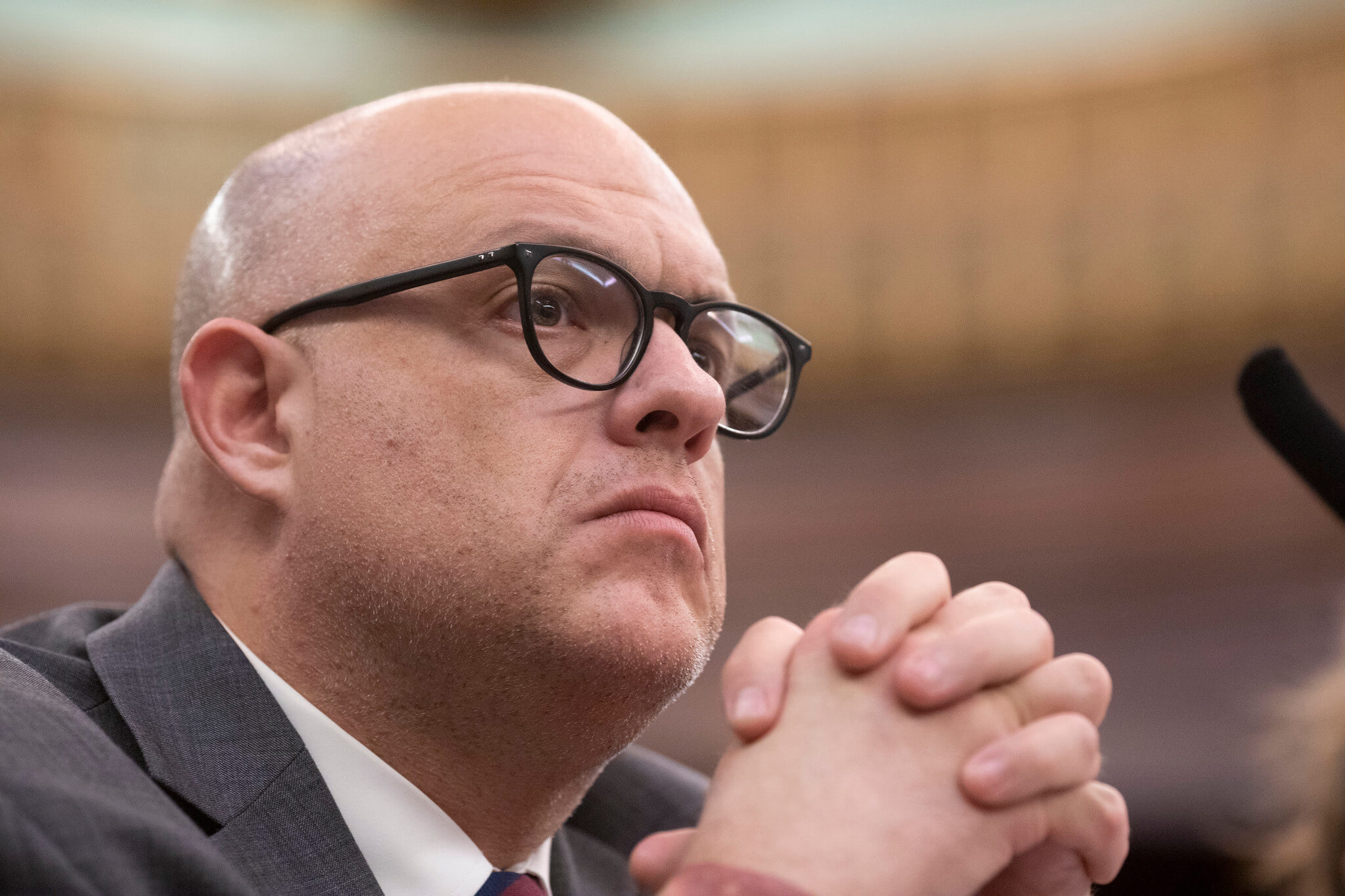
Kagan would have to come out on top in a June Republican primary in order to face Brannan in the Nov. 7 general election.
Besides Kagan’s race, Borelli told amNewYork Metro that council Republicans are looking to make gains in a couple of other districts across the city in 2023, including a “potential seat” in Queens and in the Bronx — though he didn’t specify which ones. But the council minority leader is tempering his expectations for how much ground his party can realistically win in a solidly-blue city like New York.
I’m “as confident as one can be, I mean, we have a limited number of seats where we can be competitive outside of the ones we already have,” Borelli said. “And we will be running candidates in those.”
Another potentially competitive race, is the primary that’s shaping up for Democratic socialist Council Member Kristin Richardson Jordan’s Council District 9 seat, which covers much of central and East Harlem. The candidates lining up to primary Jordan include Assembly Member Al Taylor (D-Manhattan), state Senator Inez Dickens and Yusef Salaam, of the “Exonerated 5” – a group of five Black men convicted of raping a woman in Central Park in the 1980s, who were later proven innocent.
Jordan – who was elected in 2021 – has drawn backlash from more moderate Democrats for opposing the One45 rezoning, which would’ve brought a pair of towers to 145th Street in Harlem containing 458 “affordable apartments,” because of fears that it would’ve accelerated gentrification of the area. The site is now on track to become a truck depot, which is slated to open in the near future.
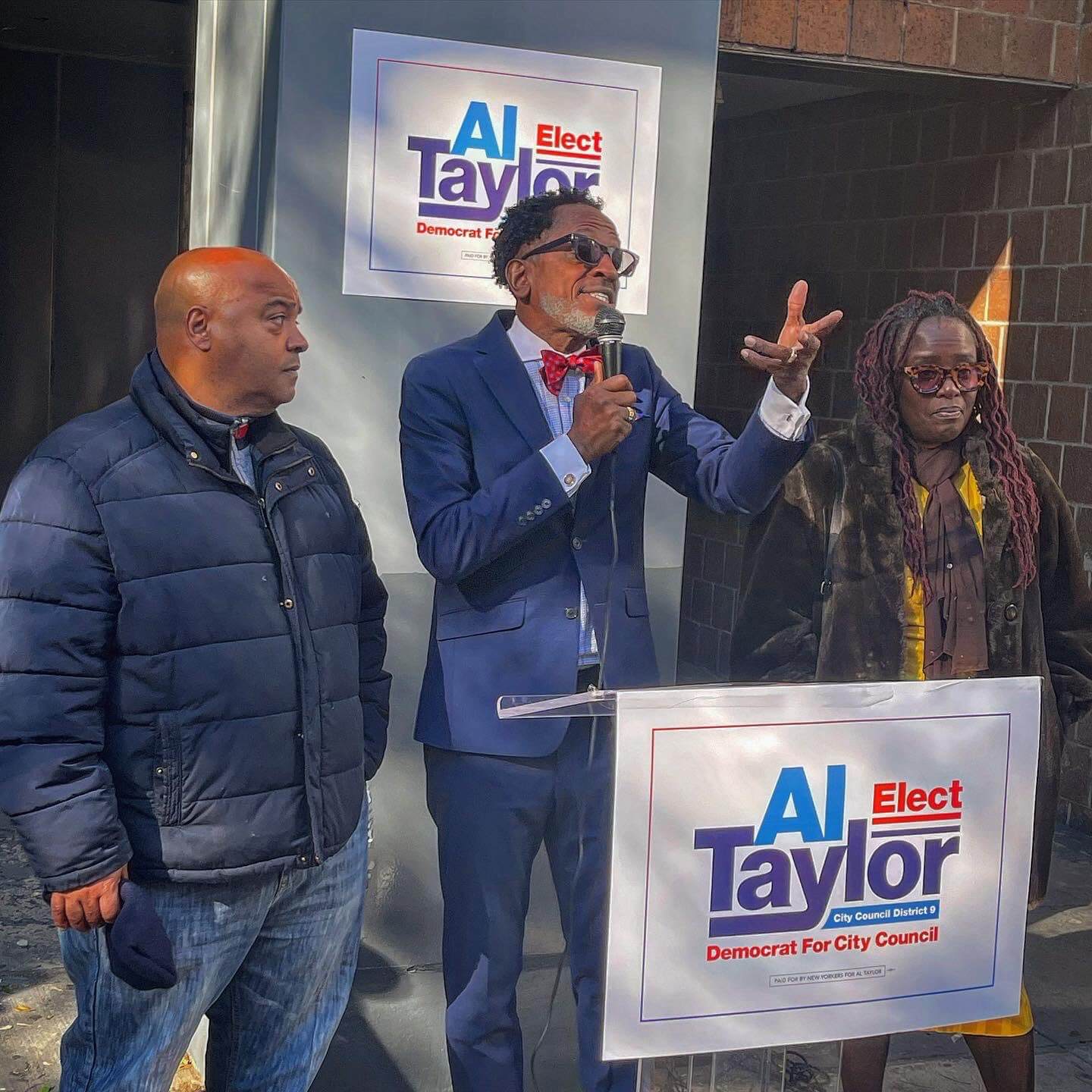
2023 state legislative session and budget season
Also on tap for 2023, is what’s shaping up to be a jam-packed state legislative session and state budget season.
Governor Kathy Hochul is scheduled to deliver her annual State of the State address – the first after being elected to a full term in November – on Jan. 10. During the address, the governor will lay out her 2023 agenda, which she’s already indicated will include a statewide “housing strategy” to reach a goal of building 800,000 units over the next decade.
One housing priority for both the governor and Mayor Adams is to replace the 421-a state tax incentive, that Albany lawmakers let expire in June, for developers to build affordable housing in the five boroughs, with a similar tax abatement.
“There needs to be incentives,” Adams said during a recent interview with amNewYork Metro. “There must be a 421-a or for 421-a type of incentive to get permits filed again, to get us building again. We have to saturate the market with housing to bring down the cost. We need all levels, we need low, middle and we also need market rate. The more you saturate the market, the more you will bring down prices.”
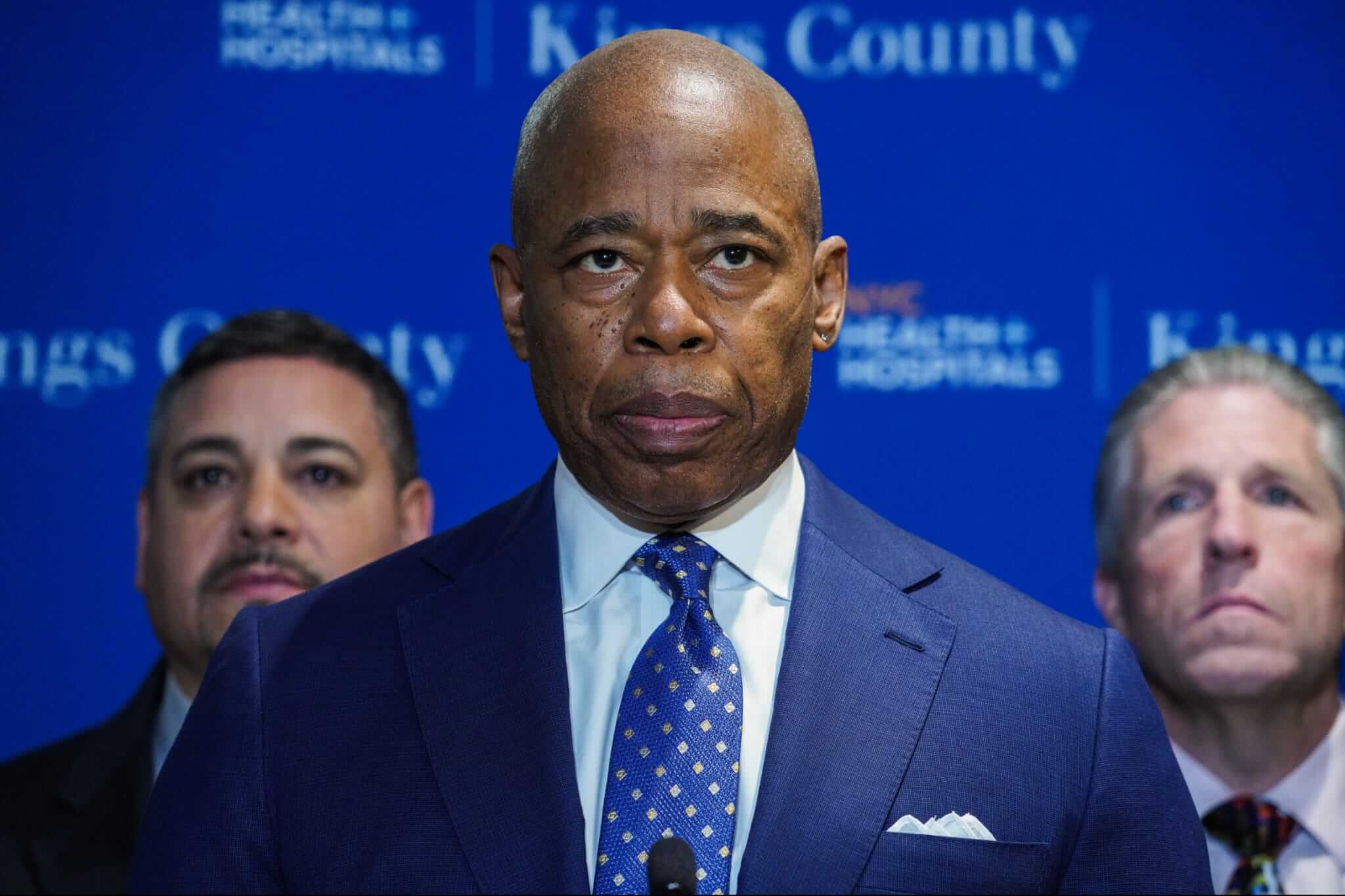
Progressives, backed by housing advocacy groups, will again make a push for so-called “Good Cause Eviction” legislation – sponsored by state Senator Julia Salazar (D-Brooklyn), which would prevent landlords from evicting tenants unless they violate the terms of their lease by failing to pay rent. They’ll also push for other bills intended to protect tenants and make housing more affordable like a to establish a new state agency called the “Social Housing Development Authority” that would be charged with preserving and building high quality affordable housing across the state.
“We have a serious housing crisis,” said Bronx Assembly Member Karines Reyes, in a report from the Bronx Times. “ …. And we have a lot of people that are living in substandard conditions. So we are doing the best we can from a policy lens to ensure that people have adequate housing that is dignified, that they can continue to stay in the communities that they’ve lived in and known for years without being displaced.”
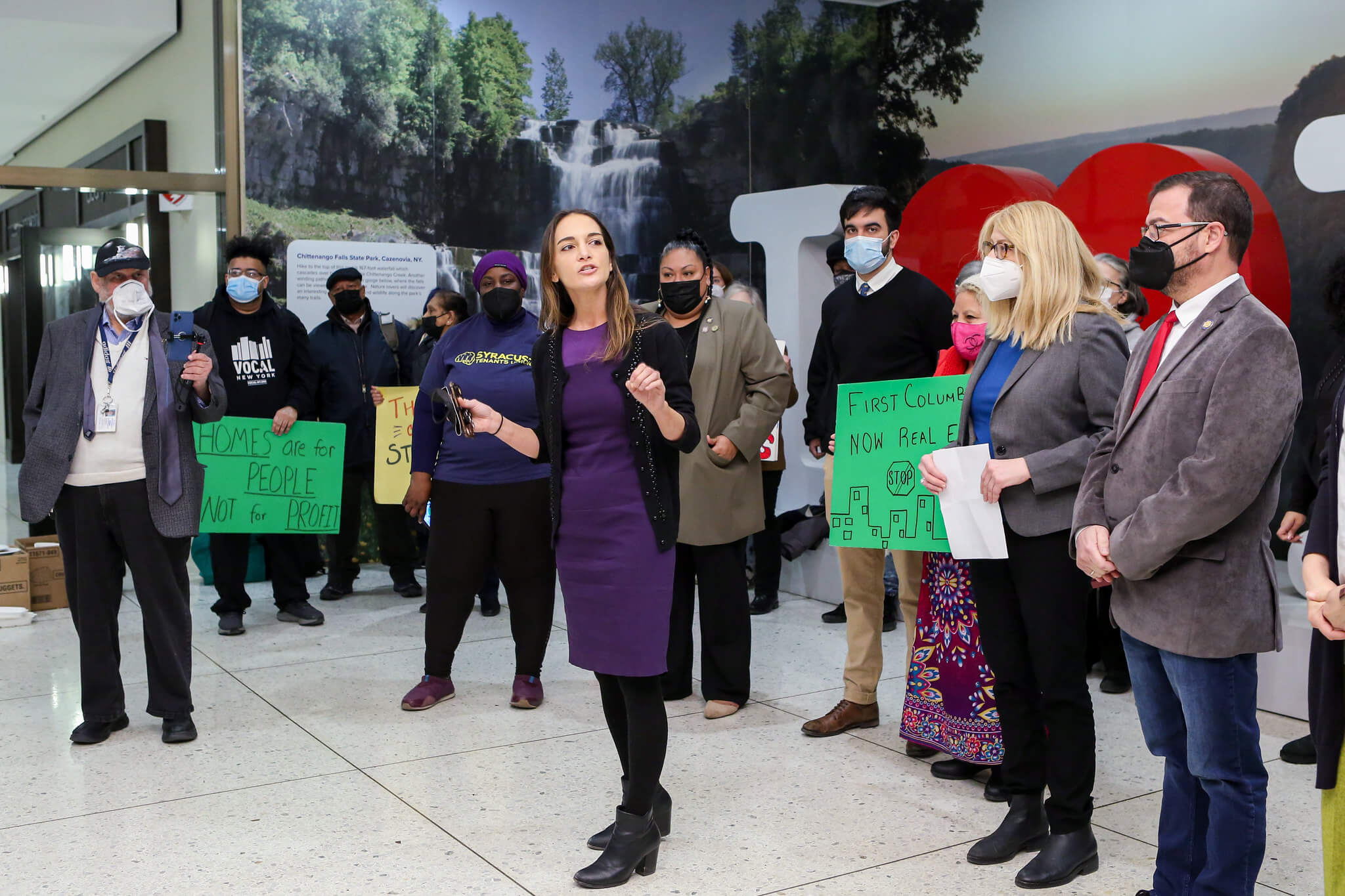
Adams is also likely to make another push for rolling back the state’s 2019 bail reforms that he’s often blamed for the rise in crime in the five boroughs since 2020, but experts have said that no direct connection has been found between the two. The mayor won some changes to the laws last year, with a last-minute push by Hochul to make more crimes – like those involving guns and repeat offenders – bail eligible, yet he didn’t get the so-called “dangerousness standard” that he’d lobbied for.
Political consultant Hank Sheinkopf told amNewYork Metro that while Adams clearly has an ally in the governor, it may not be enough to convince the more progressive state legislature to reverse reforms they made just three years ago, and have already tweaked a couple of times. State Senate Majority Leader Andrea Stewart-Cousins (D-Yonkers) and Assembly Speaker Carl Heastie (D-Bronx) have resisted making further changes to the reformed laws.
“The legislature and the mayor have always been contentious, historically,” Sheinkopf said. “So it’s not surprising that he did not get the dangerousness standard. And it won’t be surprising if he doesn’t get the bail reform he wants.”



